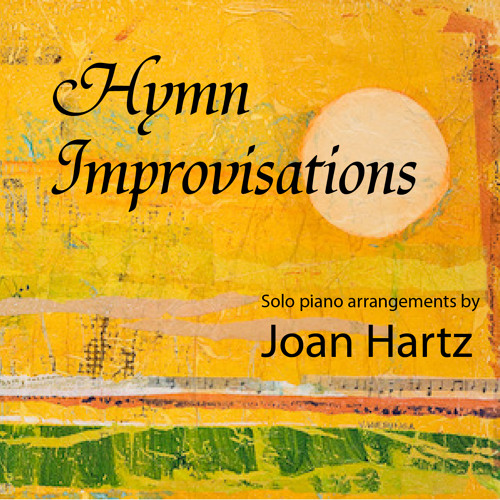Jesus’ prayer in the Garden of Gethsemane has always been a question-raiser for me, mostly on the subject of wills. I might have alternatively entitled this post “A Will Divided?”.
Before I go any further, let me first cite the three parallel Gospel accounts of Jesus’ prayer (which I take from the New International Version):
“My Father, if it is possible, may this cup be taken from me. Yet not as I will, but as you will. … My Father, if it is not possible for this cup to be taken away unless I drink it, may your will be done.” -Matthew 26:39, 42
“Abba, Father, everything is possible for you. Take this cup from me. Yet not what I will, but what you will.” -Mark 14:36
“Father, if you are willing, take this cup from me; yet not my will, but yours be done.” -Luke 22:42
Here Jesus is trying to decide whether or not to drink the cup of suffering/death/wrath that awaits him. Actually, probably not even that; he’s always known what he has to do and what he will do, but nonetheless, this prayer demonstrates a very human plea of his. The cup represents the literal hell that Jesus would experience on the cross. “Please, save me from this hell!” Jesus cries. No matter which Gospel you read from, the gist of his prayer is this: “God, please don’t let me die this way. I will if you really want me to, but I hope that’s not the case.”
Christians pray in much the same way today. “God, please heal my mother, if that be your will.” (Translation: Don’t let my mom die!) Or, “Please let me receive a job offer this month, if that be your will.” We ask God for what we want, and then tack on that obligatory addendum: “if it’s your will.” I’m not knocking it; Jesus taught his disciples to  pray that way, and now here he is practicing what he preached. My point, though, is that Jesus did not want to drink from the cup; he wanted there to be another way for sin to be conquered and salvation made available. Christians are quick to emphasize the “your will be done” part of Jesus’ prayer in Gethsemane, at the expense of what preceded it, which is a heartfelt expression of his worry and fear—very natural emotions, given his circumstances. I’m not saying that Jesus didn’t have a sincere desire to do his Father’s will, because he certainly did; he said so several times and demonstrated as much. What I am saying is that we do damage to the gospel story when we ignore the humanity of Jesus, when we see him as a marionette being controlled from on high by the Father’s hands. Jesus was fully God, but he was also fully human, which means that unlike God the Father, Jesus had human thoughts, human emotions, and a human will. And a personality all his own.
pray that way, and now here he is practicing what he preached. My point, though, is that Jesus did not want to drink from the cup; he wanted there to be another way for sin to be conquered and salvation made available. Christians are quick to emphasize the “your will be done” part of Jesus’ prayer in Gethsemane, at the expense of what preceded it, which is a heartfelt expression of his worry and fear—very natural emotions, given his circumstances. I’m not saying that Jesus didn’t have a sincere desire to do his Father’s will, because he certainly did; he said so several times and demonstrated as much. What I am saying is that we do damage to the gospel story when we ignore the humanity of Jesus, when we see him as a marionette being controlled from on high by the Father’s hands. Jesus was fully God, but he was also fully human, which means that unlike God the Father, Jesus had human thoughts, human emotions, and a human will. And a personality all his own.
The artwork I chose for this discussion is Michael D. O’Brien’s painting Christ in Gethsemane, because in the downcast eyes and hunched posture of his Christ, I see written the garden prayer. I also see myself in the painting, because in moments of prayerful distress, when my will seems to be struggling with God’s, I have often assumed a similar pose and expression. Again, I’ve never experienced anything even remotely close to what Jesus experienced at that moment, and no one ever will. But still, I can identify with Jesus in a small way because I can identify with the emotions of worry and fear.
It’s interesting that Matthew and Mark specify in their accounts that Jesus prayed this prayer three times. Matthew even assigns slightly different words to the first and second petitions: the first time, Jesus says “if it is possible,” and the second time, he says “if it is not possible.” OK, I am dealing with an English translation here, not the original Greek, so I may be reading too much into something that was not meant to be read into, but it seems that this second prayer indicates a greater degree of resignation to the will of the Father. As he lies on the ground of the garden, Jesus grows into a clearer and clearer realization of what has to happen, and as he does, he submits, he accepts.
So obviously, Jesus was experiencing a conflict of emotions here. But was he also experiencing a conflict of (self-)wills? Now to my questions (all three of which are intricately interrelated):
1. Did Jesus have two wills—one human, and one divine? And if so, how did that work? Was it like DID (split-personality disorder)? Or did his divine will always corral in his human will, or what?
Theologian Jason Dulle has conveniently drawn up a concise summary of the five prevailing Christian views regarding this topic, each of which can be said to have its own holes:
- Monophysitism: Christ possesses two wills. The divine will overshadows or subsumes the human will, rendering it basically inoperable.
- Apollinarianism; Kenoticism: The human will was replaced by the divine will.
- Eutychianism: The human and divine wills have been united into one new theanthropic (divine-human) will.
- Incipient Nestorianism: Christ possesses two distinct wills working in conjunction with one another.
- Cyrilianism: In Christ God wills exclusively as man through his assumed human nature.
2. From the Gethsemane accounts (and from John 6:38—“I have come down from heaven, not to do my own will but the will of him who sent me”), it is clear that Jesus’ will is different from the Father’s will. How can that be, if they are of the same substance? (I had always thought that all three persons of the Trinity had different primary functions but the same goal or purpose.) Is Jesus’ divine will the same as the Father’s? When Jesus said, “Not my will but thine be done,” could he have said instead, “Not my human will, but thine (and my) divine will, be done”? Does Jesus still have a human will, now that he has fulfilled his earthly purpose and is seated at his Father’s right hand?
3. How important is it that Jesus willingly sacrificed himself (as opposed to being killed against his will)? If he had gone to the cross unwillingly, wouldn’t his blood still have atoned for the sins of the world? Of course, I know that he ultimately did die willingly: He told his disciples to put down their weapons as he was being arrested, he didn’t defend himself in court, and he didn’t call on the angelic armies to rescue him. The only reason I’m asking this question is because I always wonder if Christians are right when they say that Jesus was happy to die for the sins of the world. Was he really? I mean, maybe in a sense he was, because he loves us so much. But in another sense, the sense that’s exemplified in the garden, he told the Father that he did not want to die. I’m just thinking out loud here.
I’m certainly not the first one to ask these questions; there has been much theologizing about them, at least the first two, throughout the centuries (as you can see from all the “isms” to be cited), starting most notably in the fifth century. I am curious as to whether there is any elucidation to be had on these points (seminarians and Christologists, hit me with your best shot!), but I’m also just as content to revel in the mystery of it all.



